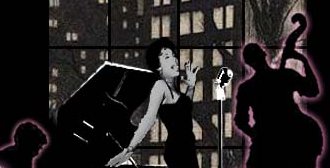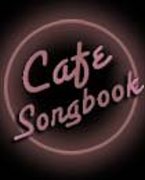Welcome toCafe SongbookInternet Home of the |
 |
 |
| Home || Songs || Songwriters || Performers || Articles and Blogs || Glossary || About Cafe Songbook || Contact/Submit Comment | |
| Search Tips: 1) Click "Find on This Page" button to activate page search box. 2) When searching for a name (e.g. a songwriter), enter last name only. 3) When searching for a song title on the catalog page, omit an initial "The" or "A". 4) more search tips. | |
E. Y. Harburg |
||
|
Vintage sheet music for "How Are Things in Glocca Morra?" |
Basic InformationBorn: Isidore Hochberg, April 8, 1898, New York City Died: March 5, 1981, Los Angeles, California Also known as Yip Harburg, where Yip is short for Yipsl, a chilhood nickname -- Yiddish for squirrel). Primary songwriting role: lyricist; alsolibrettistand playwright Co-writers: chiefly Harold Arlen, and Burton Lane. Other Harburg collaborators featured on Cafe Songbook include Jerome Kern, Ira Gershwin, Jay Gorney, Johnny Green, Sammy Fain, and Milton Ager. See also a database of 32 Harburg co-writers. |
|
Overview and Commentary: |
|
 Max Wilk, They're Playing Our Song: Conversations with America's Classic Songwriters (originally published 1973 as They're Playing Our Song: From Jerome Kern to Stephen Sondheim—The Stories behind the Words and Music of Two Generations), New York and Stratford, CT: Easton Studio Press, 2008. |
Many of the Songbook songwriters not only collaborated with each other on the songs but commented on each other as well. Wilk elicits in his interview with Harburg, the lyricists comments on some of his collaborators -- and, in other interviews, their comments on him: Burton Lane, with whom Harburg wrote the songs for Finian's Rainbow, comments on Yip with regard to their collaboration on that show: "You know, "I've known Yip since I was seven, so there is almost a father-son thing in our relationship. And when I write songs with him, I don't think there's a more satisfying creative experience in anything I've ever done, before or since. More than anyone else I've ever worked with, Yip makes my tunes come to life. I mean, he has a tremendous ear--catches every nuance that's in a tune--fits it with lyrics that are right, and it's a joy. He makes me like my own tunes better" (Wilk pp. 261-262). And here's what Harburg has to say about Vernon Duke: "'I liked Vernon's facility. He was fast and very sophisticated., almost too sophisticated for Broadway. Walk a Little Faster had some very smart stuff in it. . . . Vernon brought with him all of that Noel Coward/Diaghilev/Paris/Russia background. He was a global guy with an ability to articulate the English language that was very interesting. A whole new world for me. He could drive you crazy, and he could also open up a new vista. Maybe it was a little bit chi-chi and decorative, but with my pumpernickel background and his orchid tunes we made a wonderful marriage. . . . Later I felt that his music lacked the essential theatricalism and the histrionics that writing for shows demanded--the drama, the emotions. So gradually I gravitated more and more to Harold Arlen'" (Wilk, p. 295) Johnny Mercer commenting on his own work habits, how he had to spend hours writing down every line he could think of and then weed out the bad ones one by one, credits Yip Harburg: "Yip Harburg taught me about that. He's a terrific writer. God, he'll sit in a room all day and he'll dig and he'll dig and he'll dig. And it shows, I think. He's witty, he has inventive. words. When Yip writes a comedy song for the stage I think he's almost without equal. Yip was a big influence in teaching me how hard to work" (Wilk, p. 153). |
|
"The lyricist E. Y. Harburg was an incurable socialist and an incurable dreamer. That combination enabled him to write two of America's most powerful songs: "Brother Can You Spare a Dime?", the ultimate hymn of the Depression, and "Over the Rainbow," the ultimate hymn of escape to a happier place" (Zinsser, p. 145). |
|
Ken Bloom quotes Harburg on how he was treated—being an adamant advocate for the political left—at MGM:
|
 Harold Myerson and Ernie Harburg with Arthur Perlman. Who Put the Rainbow in The Wizard of Oz?: Yip Harburg, Lyricist. Ann Arbor: University of Michigan Press, 1993 |
Harburg acquired his nickname, "Yip" (derived from "yipsl," the Yiddish word for "squirrel") as a child. "These youngsters are not producing the great songs that a Hart or a pair of Gershwins produced when they - and the century - were in their thirties. . . . I suspect that much of the difference springs from the way in which shows are written today, much from the lack of great composers to challenge the lyricists to write greatly, and much from the climate of our times. . . . "[A] cross that the Sondheims and Harnicks must bear is that they are not writing with a Richard Rodgers, a Jerome Kern or a Harold Arlen. For a great song requires a great composer." (Harburg --c. 1961-- on later generations of Broadway songwriters, from Myerson and Harburg, p. 314). Harburg also compares contemporary songs and songwriters to his generation during his interview with Max Wilk:
|
 Stephen Sondheim. Finishing the Hat: Collected Lyrics (1954-1981) with Attendant Comments, Principles, Heresies, Grudges, Whines and Anecdotes. New York: Alfred A. Knoph, 2010. |
For one contemporary songwriter, no doubt not one of those Harburg refers to above, Stephen Sondheim says that among his favorite lyrics are Harburg's for Finian's Rainbow; nevertheless, he writes in Finishing the Hat, "Brilliant as some of the songs in Finian's Rainbow and Bloomer Girl* are, Harburg's most consistently superb lyrics were written for the movies Cabin in the Sky and The Wizard of Oz, because despite the occasional solid naturalistic lyric like "Brother Can You Spare a Dime?', Harburg was at his best when the subject matter suited his fanciful style." *Bloomer Girl, however, is the source, according to Sondheim, of one of his favorite lyric lines as well as one of his favorite couplets. He favors them for the same reason:
"Lyrics," says Sondheim, "don't come any better than that." Finishing the Hat, p 99. |
| back to top of page | |
Cafe Songbook |
|
|
Harburg himself sings his most famous song (as well as putting it in historical context -- 1979). Amazon |
|
| Kaye Ballard and Arthur Siegel in a tribute to lyricist E.Y. "Yip" Harburg. A live performance at Michael's Pub, New York City, 1988. Songs, Part 1: "Fancy Meeting You," "There's a Great Day Comin' Manana," "Today's the Day to Make Way for Tomorrow," "Paper Moon," "Brother Can You Spare a Dime?" "Don't Let it Get You Down (Love is a Lovely Thing)," and "Down With Love." Songs, Parts 2: a Groucho Marx impression of the song, "Lydia," Mabel Mercer's "April in Paris," and a medley of songs from "The Wizard of Oz," featuring Kaye playing "Over the Rainbow" on flute. | |
| Parts 1 an 2 of a documentary tribute to the life of Yip Harburg from Pacifia Radio Democracy Now Project featuring Ernie Harburg being interviewed about his father, first broadcast November 25th 2004. Watch Part 3 and Part 4 at YouTube. video credits |
|
| back to top of page | |
|
|
|||||||
| back to top of page | ||||||||
Visitor CommentsSubmit comments on songs, songwriters, performers, etc.
Feel free to suggest an addition or correction. Please read our Comments Guidelines before making a submission. (Posting of comments is subject to the guidelines. Not all comments will be posted.) |
| To submit a comment, click here. |
Posted Comments on Yip Harburg:
No comments as yet posted |
| back to top of page |
Credits(Yip Harburg page) |
Credits for Videomakers of videos used on this page:
Borrowed material (text): The sources of all quoted and paraphrased text are cited. Such content is used under the rules of fair use to further the educational objectives of CafeSongbook.com. CafeSongbook.com makes no claims to rights of any kind in this content or the sources from which it comes.
Borrowed material (images): Images of CD, DVD, book and similar product covers are used courtesy of either Amazon.com
Any other images that appear on CafeSongbook.com pages are either in the public domain or appear through the specific permission of their owners. Such permission will be acknowledged in this space on the page where the image is used.
For further information on Cafe Songbook policies with regard to the above matters, see our "About Cafe Songbook" page (link at top and bottom of every page). |
| Home || Songs || Songwriters || Performers || Articles and Blogs || Glossary || About Cafe Songbook || Contact/Submit Comment | |
© 2009-2018 by CafeSongbook.com -- All Rights Reserved |



